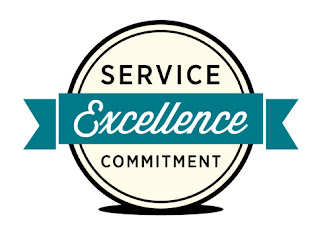Lower Work Stress: Learn To 'Not Give A Ship'
By: Rod Lacey
Sunstone HR (Human Resource Consulting)
"Be a rock-star at the things you can control and do your best to not “give-a-ship” about the rest."
Life is stressful, extremely busy and naturally gives us plenty to worry about. We are surrounded by an innumerable set of factors that can influence every moment of every day. As we interact with people, their behaviors and choices have an impact on us. Everything we touch during the day has an impact. Even the weather has a bearing on our daily experience.
 To optimize the amount of
peace I enjoy, and to minimize my stress, one of the skills I’ve tried to
fine-tune is the ability to separate these daily influences into two separate
camps:
To optimize the amount of
peace I enjoy, and to minimize my stress, one of the skills I’ve tried to
fine-tune is the ability to separate these daily influences into two separate
camps: - Things I cannot control, and
- Things within my control.
My ultimate goal with this exercise is:
- Do the very best I can at the things within my control, and
- Don’t “give a ship” about the rest
- If I’ve done the very best I can do, why should I worry about what others’ think?
- If you’ve done the best work you can do, why should you worry about your upcoming performance evaluation? (What more could you have done?)
- If you’ve prepared your best presentation, you should focus on knocking it out of the park instead of how others might perceive it, right?
- If the project represents your best effort, focus on putting your best work into your next project rather than pausing to worry about what others might think about the work you’ve already completed.
(This
‘best work’ assumes alignment with a company’s initiatives or other priorities.
Doing your best at random stuff doesn’t necessarily give you the peace that I’m
talking about. There is also an assumption of general ability – you have the
skills to complete the task. If you don’t have the skills, you should ‘give a
ship’ about how your work will be perceived.)
(I also
clarify that you should ‘give a ship’ about things outside your control when it’s
related to important relationships - spouses, children, family and close
friends. This article relates to the workplace, work stress, productivity and
job performance)
Coach John Wooden once said
“Don’t
worry about the things you can’t control because they may adversely affect the
things you can control.”
Now, if you have not done
your best at the things within your control, I can’t help you much there.
Please feel free to stress a little for now, and do your best next time!
We’ve all met that person
who is consumed with frustration and discouragement. Nothing seems to go their
way. Outside influences are the reason they share for the bad day they’ve had.
Rain disrupts picnic plans and ruins an afternoon. A coworker made an inconsiderate
comment about a project, which ruined the next morning. Anxiety about an
upcoming performance evaluation becomes a huge distraction at work. Ask
yourself “do I like to be around that person?”
An unknown author said “If
you try and control everything, and then worry about the things you can’t control,
you are setting yourself up for a lifetime of frustration and misery.”
Compare the above ‘doom-and-gloom’
coworker to the one who always seems upbeat, has high energy, exudes optimism
and if focused on doing her best at the things she can control. We all want to
spend more time with this coworker, right?
 If you add-up an
individual’s potential stressors, the impact on the ‘peace’ one feels in life
could be huge! The
individual that can successfully segment the stressors into these two groups is the
one that is the most productive. She
can truly focus on ‘being the best she can” because she’s focused on things
within her control. Others will be stressing about things outside their
control, which will turn-out to be a distraction from items they could
otherwise be positively influencing.
If you add-up an
individual’s potential stressors, the impact on the ‘peace’ one feels in life
could be huge! The
individual that can successfully segment the stressors into these two groups is the
one that is the most productive. She
can truly focus on ‘being the best she can” because she’s focused on things
within her control. Others will be stressing about things outside their
control, which will turn-out to be a distraction from items they could
otherwise be positively influencing.
In summary, let me offer the
advice of Tim Tebow. “Don’t worry about what you can’t control.
Our focus and energy needs to be on the things we CAN control. Attitude,
effort, focus – these are the things we can control.”
When stress and frustration negatively
impact the peace you hope to have in your life, take a moment and separate the
stressors into two groups:
- Things you can control, and
- Things you can not.
Be a rock-star at the things you can
control and do your best to not “give-a-ship” about the rest.
For more information on Rod Lacey or Sunstone HR, click here!
For more information on Rod Lacey or Sunstone HR, click here!



Comments
Post a Comment